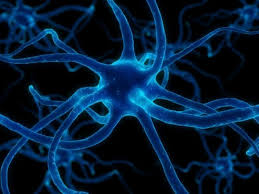Highlights
- •Beta-amyloidosis affects structural plasticity of O-LM interneuron synapses
- •Fear learning induces cholinergic input-dependent rewiring of O-LM interneuron spines
- •AD-like pathology impairs synaptic rewiring and memory recall after fear learning
- •Impaired cholinergic drive on O-LM interneurons relates to wiring and memory deficits
Summary
Alzheimer’s disease (AD) is characterized by cognitive decline and neuronal network dysfunction, but the underlying mechanisms remain unknown. In the hippocampus, microcircuit activity during learning and memory processes is tightly controlled by O-LM interneurons. Here, we investigated the effect of beta-amyloidosis on O-LM interneuron structural and functional connectivity, combining two-photon in vivo imaging of synaptic morphology, awake Ca2+ imaging, and retrograde mono-transsynaptic rabies tracing. We find severely impaired synaptic rewiring that occurs on the O-LM interneuron input and output level in a mouse model of AD. Synaptic rewiring that occurs upon fear learning on O-LM interneuron input level is affected in mice with AD-like pathology. This process requires the release of acetylcholine from septo-hippocampal projections. We identify decreased cholinergic action on O-LM interneurons in APP/PS1 mice as a key pathomechanism that contributes to memory impairment in a mouse model, with potential relevance for human AD.







